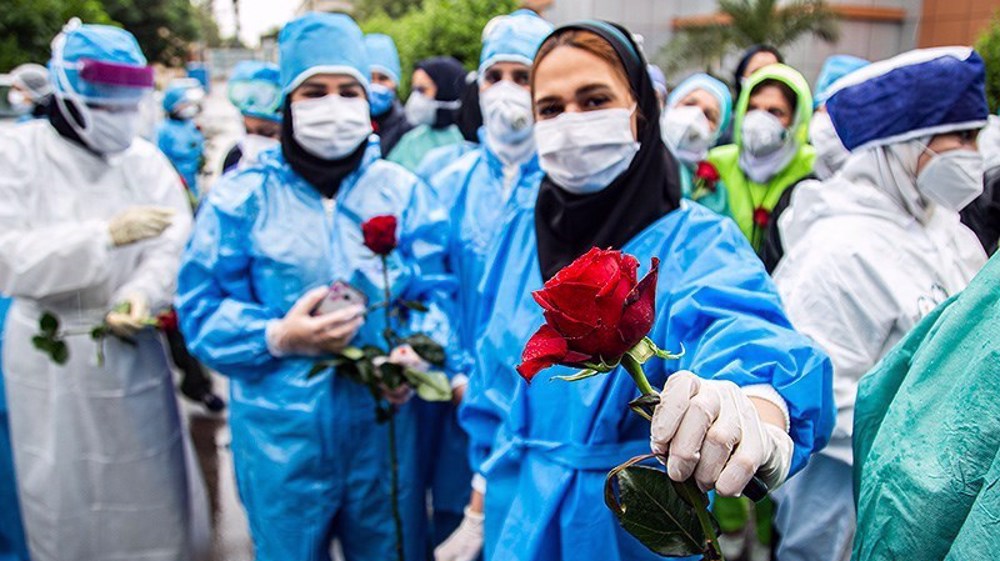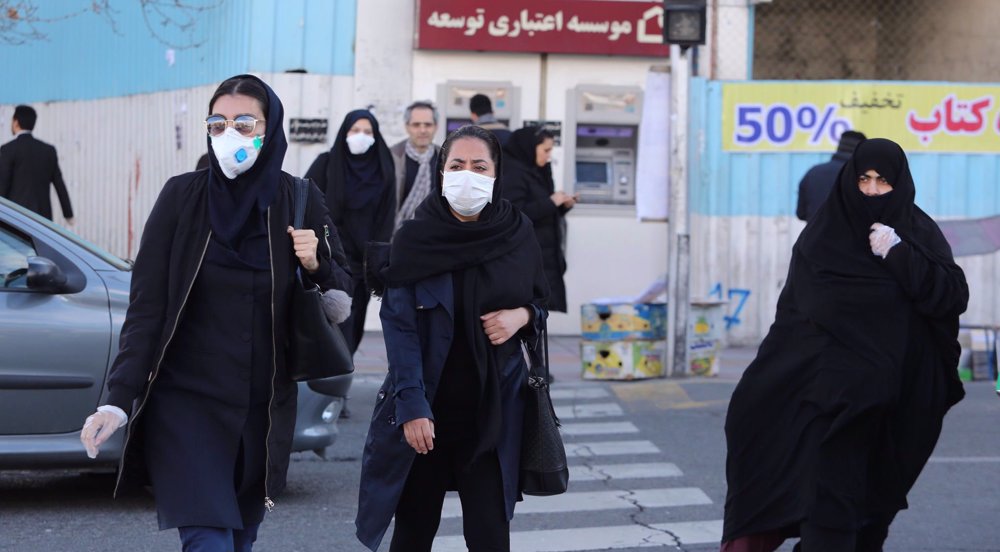Iran says doubts US intentions in offering coronavirus aid
Iran says it does not count on the United States for help in its battle against the coronavirus because it does not trust Washington’s alleged offer of assistance.
President Donald Trump said on Saturday the US was willing to help the Iranians with the problem, adding "all they have to do is ask," just after he authorized the expansion of travel restrictions against Iran.
Iran's Foreign Ministry spokesman Abbas Mousavi said Monday, "We have had doubts and continue to have doubts about the intentions of Americans. If they had good intentions, they would not have publicized the aid first in the media with propagandist aims."
The United States, which has had no diplomatic ties with Iran since 1980, pulled out of a landmark nuclear deal with the country and reimposed crippling sanctions in 2018.
US Vice President Mike Pence on Saturday detailed Trump's heightened travel bans against Iranians in a press conference from the White House.
"First, the president authorized action today to add additional travel restrictions on Iran. … Iran is already under a travel ban, but we’re are expanding existing travel restrictions to include any foreign national who has visited Iran within the last 14 days,” Pence said.
Ali Ahmadi, a resident in Tehran, said the US has already made it difficult for Iranians, including its scientists, to travel there.
"Now that the virus has appeared, we expect nothing less from America,” he said, expressing widespread frustration with US policies on Iran.
Mousavi said, "We monitor the Americans' positions. We have already seen how much they acted against Iran and our capabilities and toward weakening the people, and those actions still continue."
"We doubt the intentions of Americans, and do not count on these aids and are not ready to receive verbal aid either," he added.
The US State Department said Friday it had formally told Iran of the United States’ willingness to assist in unspecified ways through a message sent via Switzerland, which represents US interests in Tehran.
Mousavi touched on a Swiss channel announced in December to bring food and medicine to Iran, saying the US government has even been stonewalling efforts to have it up and running.
The spokesman said most of Iran's needs to contain the coranavirus and treat patients exist in the country, but that its friends have also announced their readiness to help the Islamic Republic.
"Turkey, China and the Red Cross have helped us. Some countries in the region have also said they are ready to cooperate," he said.
Mousavi, however, reserved his special thanks for China. "The Chinese government has fully stood by the Iranian people and sent several medical shipments to Iran."
China also sent a scientific team for research on finding a vaccine for the coronavirus and to transfer their latest findings to their Iranian peers, he added.
"This is a good example of international cooperation. If all fulfill their obligations with this seriousness and goodwill, we will definitely have a better world," Mousavi said.
The virus that emerged in the central city of Wuhan late last year has so far claimed more than 3,000 people worldwide.
In Iran, it has claimed 66 lives and infected 1,501 others, 291 of whom have recovered.
Iranian medical officials have assured that the country will contain the outbreak, noting that the condition of most of the patients diagnosed with the virus have improved.
The country has mobilized all its resources to confront the disease, with the Islamic Revolution Guards Corps (IRGC) and Iran’s regular Army being the latest to join the campaign Sunday.
Defense Minister Brigadier General Amir Hatami has ordered his ministry's medical arms to start mass-producing liquid disinfectants and protective masks in large quantities.
Mousavi said Iran was exercising control on its borders and has reduced the number of entries as well as the number of visas issued for foreign nationals.
Certain Persian-language media outlets based outside Iran, however, are unnerving the public through spreading alarmist news, he complained.
Mousavi appealed to Iranians to maintain their high spirit and help contain the malaise so that these outlets cannot take advantage of the situation.
Several television channels, chiefly based in Europe, broadcast programs in Persian with the funding of British and Saudi governments as well as former Iranian monarchists.
Some of their broadcasts have been aimed at disrupting Iran's financial market and stoking riots across the country. Last week, BBC Persian Television claimed that the coronavirus had killed more than 200 people in Iran.
UNRWA warns of humanitarian collapse in Gaza
'Hello my enemies': Lebanese journalist on Israeli threats and his resolve to continue
Outrage in France as MP proposes bill to ban criticism of Israel
VIDEO | The strategy of Hezbollah in war
Israeli military withdraws several brigades from southern Lebanon: Report
48-year-old Palestinian man serving 48 life terms completes 22 years in Israeli jails
From MKO to Tondar, how Germany became safe haven for anti-Iran terror groups
Hamas open to any proposal aiming to end Gaza war: Hamdan















 This makes it easy to access the Press TV website
This makes it easy to access the Press TV website